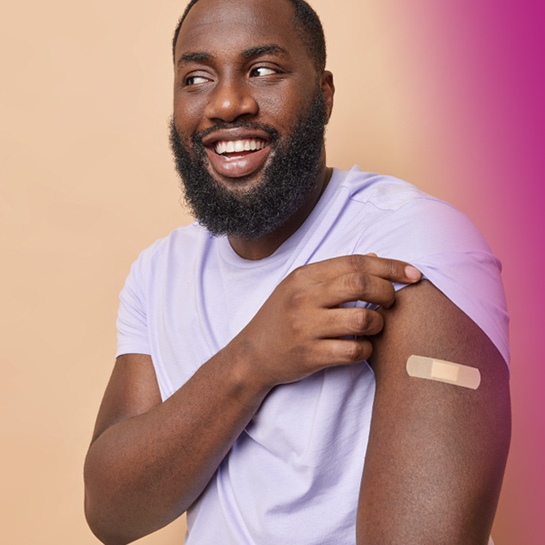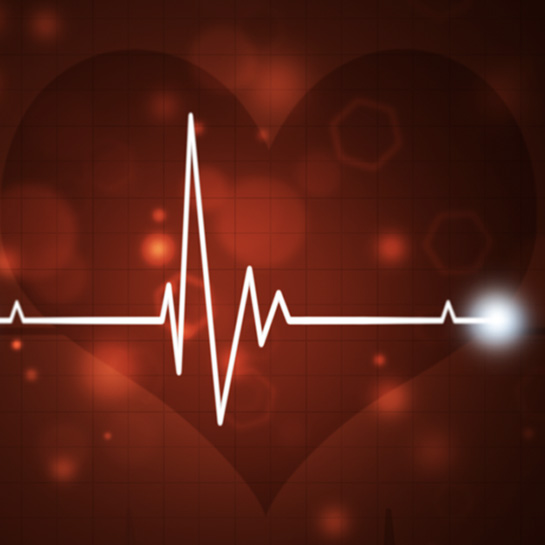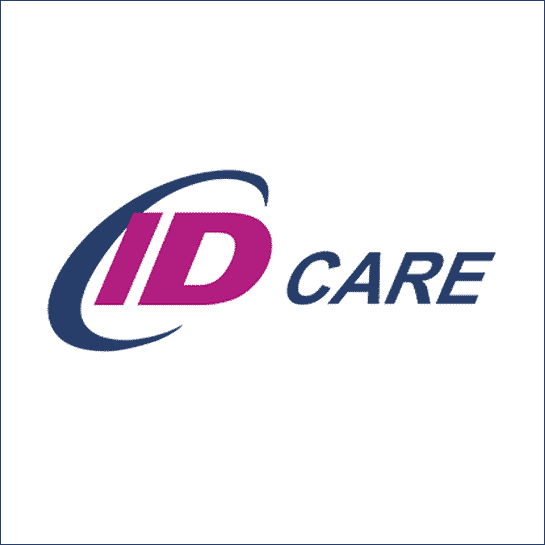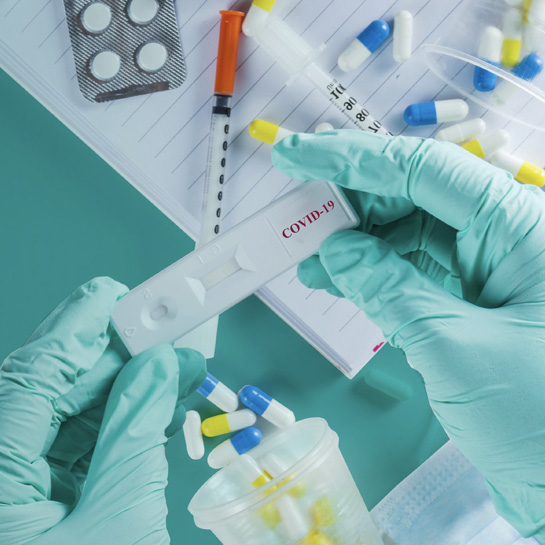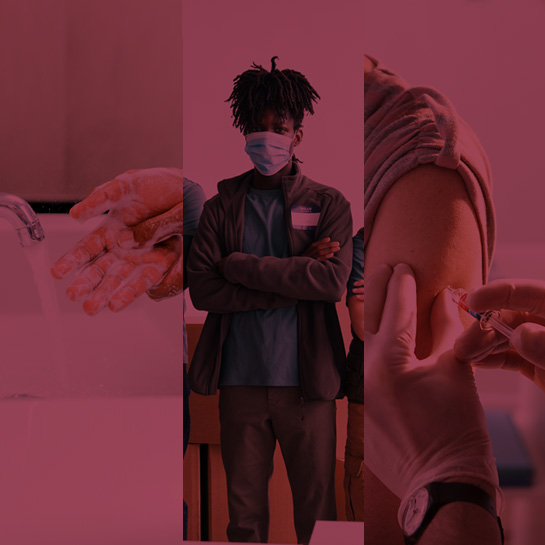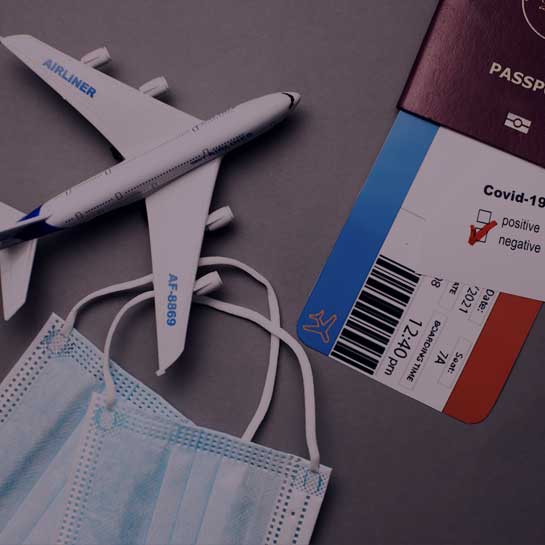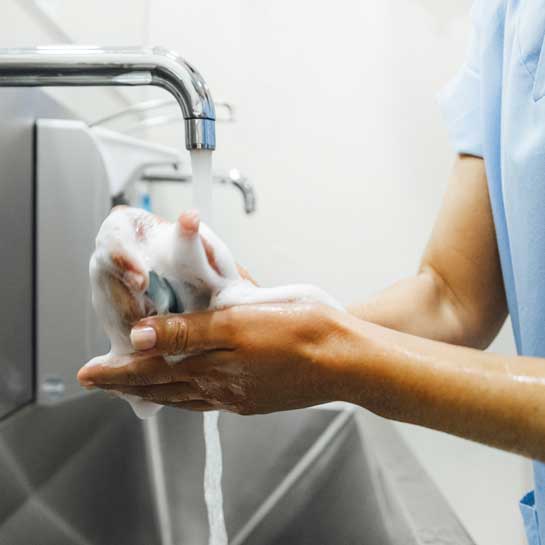NJ Coronavirus Information and Resources
Latest COVID-19 Updates
In a continued effort to keep our patients and partners as safe and informed as possible, ID Care has created a summary of resources for the most-up-to-date information and FAQs concerning the COVID-19 pandemic. Please check back regularly as information concerning public health measures can change on a daily, and sometimes hourly, basis.
COVID-19 Vaccine Benefits
Both the Pfizer and Moderna COVID-19 vaccines offer great hope in the face of the coronavirus pandemic. To learn more about the development, safety, and benefits of the approved vaccines please watch the latest video from infectious disease expert Dr. Nahass, MD.
COVID-19 Vaccine Eligibility
New Jersey’s goal is to vaccinate 70 percent of the adult population – or 4.7 million adults – within six months. Get the latest information on which residents are now currently eligible to receive an immunization in the state of New Jersey. Learn More.
Vaccine Registration
COVID-19 vaccines are on the way to hospitals and clinics across New Jersey. You can reserve your spot to get a vaccine now by pre-registering. Register Here.
COVID-19 Vaccination Clinical Resources
Get up-to-date information from government agencies on all of the important protocol information healthcare facilities need to know – from COVID-19 vaccination administration, storage and handling, to reporting, patient education, latest approvals, and more.
Vaccine Locations
Many individuals are now eligible for immunization in New Jersey, with more to follow in the coming months. If you are interested in scheduling a vaccination, browse a list of vaccination sites nearest you by visiting here.
FAQS: Coronavirus Treatment, Resources, & Vaccination Information
ID Care is committed to updating these resources weekly so you have the most up-to-date information. Check back for the latest news.
ID Care Clinic Questions
Are there any changes to ID Care’s hours or open locations during the pandemic?
ID Care will maintain regular hours during the pandemic. To contact one of our conveniently located clinics across New Jersey for specific operating hours, please click here.
Are ID Care clinics offering telemedicine?
In order to ensure both patients and healthcare staff remain safe and comfortable, all ID Care offices now offer telemedicine options. Furthermore, we encourage all current and potential patients to continue receiving scheduled care during the pandemic.
What is ID Care doing to keep patients safe?
During the pandemic, ID Care is allowing a limited number of patients into offices at any given time to ensure social distancing. In addition, we are making sure proper masks are used and all areas are cleaned and sanitized on a regular basis. Also, rapid same-day testing is available to help determine the likelihood of active COVID inpatient who may not feel well.
Is ID Care going to be administering the vaccine, and if yes, to whom, when and what location(s)?
At the current time, vaccine availability is limited and controlled by the government. When we have an allocation we will update the website.
Vaccine Questions
Should I be concerned about the COVID-19 variants?
Viruses constantly change through mutation, and new variants of a virus are expected to occur over time. Multiple variants of the COVID-19 virus have been documented in the United States and globally during this pandemic. Information about the characteristics of these variants is rapidly emerging, however, at this time, it is believed that some of these variants seem to spread more easily and quickly. To learn more about emerging COVID-19 variants, visit here.
What is a novel coronavirus?
The word novel means “new.” A novel coronavirus is a variation that hasn’t yet been identified.
Many coronaviruses commonly circulate among humans, causing illnesses like the common cold. However, the virus that’s causing coronavirus disease 2019 (COVID-19) is a brand-new strain. This means healthcare providers are still working on how to best care for patients and develop treatments.
How serious is COVID-19?
The effects of COVID-19 vary from patient to patient. Some will remain asymptomatic, which means they will not experience any symptoms at all. The vast majority of affected individuals experience mild to severe symptoms that are comparable to an average respiratory illness. Some patients in this group will require hospitalization.
A minority of patients will develop pneumonia and/or very severe symptoms, and these individuals often require treatment in an intensive care unit. Members of this group are more likely to pass away due to coronavirus, and while they represent just a portion of cases, their experience reveals the critical need to limit the disease’s spread.
It’s important to note that healthcare experts are still working hard to understand COVID-19 and learning more each day. As more information becomes available, they can better assess the real impact of the virus and what those affected can expect.
How does the virus spread?
COVID-19 was originally detected in China’s Hubei Province within Wuhan City, where it spread from an animal to a human host at a live animal market. Once the virus enters the human body, it enters the cells and hijacks their functions before spreading to other cells, infecting and destroying them.
Today, the virus continues to spread from person to person. The novel coronavirus appears to spread easily within affected geographic regions for extended periods of time, often described as community spread.
At this time, experts believe the virus is primarily spread during close contact (about 6 feet) with infected individuals via respiratory droplets. When an infected person sneezes or coughs, these droplets can land in the noses and mouths of those nearby or be inhaled through the lungs. Those who exhibit symptoms are believed to be the most contagious, but the virus may also be spread by those who do not yet have symptoms.
Although there was some concern that surfaces may have been a source for the virus to spread from person to person we now know that this is not a major concern.
At this time, there is no evidence that the virus can be transmitted via food. However, you should always wash your hands for at least 20 seconds with soap and water, or use hand sanitizer if soap and water are unavailable, before eating. Additionally, it is recommended that anyone preparing food at home or commercially follow all general rules for food safety.
What are the symptoms of COVID-19?
Symptoms of COVID-19 include:
- Fever
- Cough
- Shortness of breath
- Tiredness
- Loss of taste or smell
- Body aches
- Nasal congestion
- Nausea
- Diarrhea
These symptoms typically develop within 2 to 14 days after exposure and require medical attention. If you experience trouble breathing, persistent pain or pressure in the chest, confusion, extreme fatigue, and/or blue lips and/or face, seek emergency medical attention immediately.
Who is most at risk?
Those who are the most at risk for contracting COVID-19 include:
- Healthcare providers
- Those living in areas where ongoing community spread is high
- Those in close contact with affected individuals
- Travelers returning from affected locations
Based on preliminary findings, the following groups are considered the most at risk for developing serious complications from COVID-19:
- Adults age 65 and over
- People with chronic medical conditions, including:
- Heart disease
- Diabetes
- Lung disease
It is important to note, however, that serious complications are presenting in a much wider age range than previously noted. Patients of any age can experience severe complications, including young adults.
Based on the available evidence, children don’t seem to be at an elevated risk for COVID-19. To date, adults make up most known cases.
What should I do if I have symptoms?
At this time, many workplaces and schools have closed to minimize the spread of COVID-19. If you have symptoms, it is even more important for you to remain at home.
You should also contact your doctor before trying to visit their office. In many cases, you will be asked to stay home or postpone your visit to prevent the spread of the virus. Be sure to follow all instructions from your doctor.
You may also need to be tested for COVID-19, although not everyone will require this step. Contact your state and/or local health department and your physician to determine if you should be tested. Keep in mind that testing is not widely available at this time and your doctor/local health department may not recommend you receive testing. Whether tested or not, most affected individuals will experience mild symptoms that can be treated at home.
Do I need to self-isolate or social distance if I’m not in a high-risk group?
Yes. Even if you’re not at risk for serious complications, you could spread COVID-19 to at-risk individuals.
While data is still evolving, preliminary findings suggest that areas where stay-at-home orders are issued earlier experience a more manageable spread of the virus. Additionally, historical data drawn from the 1918 influenza epidemic reveals a significantly slower spread and lower mortality rate in cities that enacted social distancing efforts.
COVID-19 will continue to spread until a safe, effective vaccine and other treatments are developed. In the meantime, social distancing helps slow this spread and reduce strain on the healthcare resources needed to care for the seriously ill.
Should I wear a mask?
At this time, the CDC does not recommend the use of a facemask to protect against COVID-19. Only specific facemasks prevent the transmission of the virus, and these should be used only by:
- Healthcare providers
- Those infected with COVID-19 and showing symptoms
- People caring for individuals infected with COVID-19 in close settings, such as at home or in healthcare facilities
There is no general consensus about the use of masks within the scientific community. Some experts suggest masks could have some benefit in reducing transmission, while others argue that they may create a false sense of security. The best way to determine if you should wear a facemask at this time is to consult with your healthcare provider.
I heard that some existing drugs can treat COVID-19. Is that true?
There is currently no known vaccination or treatment for COVID-19. Those affected may be prescribed medicines to reduce symptoms like fever and cough. If you have any questions, contact your healthcare provider.
Why have businesses and schools closed?
Schools and businesses put people into close contact. Even a single infected person could potentially transmit COVID-19 to many coworkers or classmates, who could then expose others. This increases strain on healthcare providers and resources. By staying home, we can help reduce new cases and make sure those who need care most receive it.
How is travel affected by COVID-19?
The CDC recommends avoiding all nonessential travel at this time. If you must travel, practice good hygiene and preventive measures on your trip. If you feel sick or suspect you have been exposed to COVID-19, stay home and do your part to flatten the curve.
For the latest information and travel advisories, please visit the CDC’s COVID-19 travel resources.
When will this outbreak end?
Researchers don’t know when the COVID-19 pandemic will end. By practicing social distancing and good personal hygiene, you can do your part to quicken its end. For up-to-date information, visit:
How can I protect myself and my loved ones?
There are many ways you can help protect yourself and your loved ones from COVID-19. These include:
- Follow the 4 Ws
- Wear a mask
- Watch your space
- Wash your hands
- When sick, stay home
- Cover coughs and sneezes
- Avoid touching your face
- Use hand sanitizer with a minimum alcohol content of 65% when soap and water are unavailable
- Clean and disinfect high-touch surfaces, including doorknobs, light switches, and counters, using gloves and an EPA-registered household disinfectant with at least 70% alcohol content
- Wash clothing and children’s toys regularly
General Questions
Why should I trust the COVID-19 vaccines?
For those who are hesitant about receiving a vaccine, it’s important to understand that the U.S. Food & Drug Administration (FDA), has used the same strict standards in reviewing this vaccine that it has used on other vaccines for decades. Despite the rapid development, no steps have been skipped. Two independent advisory committees have reviewed the results – The Vaccines and Related Biological Products Advisory Committee (VRBPCA) that advises the FDA, and The Advisory Committee on Immunization Practices (ACIP) that advises the CDC – and both have deemed the vaccines are safe and effective. Keep in mind, members and experts of both committees have no conflict of interest and are not associated with any vaccine manufacturers.
Are there special considerations on who should get the COVID-19 vaccine first?
CDC is making recommendations for who should be offered COVID-19 vaccine first when supplies are limited. To help guide decisions about how to distribute limited initial supplies of COVID-19 vaccines, CDC and the Advisory Committee on Immunization Practices have published recommendations for which groups should be vaccinated first. The goal is for everyone to be able to easily get a COVID-19 vaccination as soon as large quantities of vaccines are available.
Where can I learn more about scheduling my vaccination in NJ?
When and how long will I be protected by the COVID-19 vaccines?
Most of the vaccines are 2 doses, 3-4 weeks apart. Partial protection occurs 1 week after the first dose, with 90% protection occurring 1-2 weeks after the second dose. Not enough time has passed to know how long the vaccines will be protective. However, the antibody responses with similar viruses such as SARS CoV1 and MERS have been shown to be present for up to three years after vaccination. Although unknown at the current time, moving forward it may be required to receive a vaccine shot for COVID-19 on an annual?? basis, similar to a flu shot.
What if I’ve already had COVID-19, do I still need a vaccine?
If a person has already been infected with COVID-19, they will be protected from further infection for some time, however, it is unknown exactly how long. It is advised to receive a vaccine after you have recovered from the illness or at least 14 days have passed after your positive test if you were asymptomatic.
How do I report it if I have a bad reaction to the COVID-19 vaccine?
The CDC and FDA encourage the public to report possible side effects (called adverse events) to the Vaccine Adverse Event Reporting System (VAERS). This national system collects these data to look for adverse events that are unexpected, appear to happen more often than expected, or have unusual patterns of occurrence. Learn about the difference between a vaccine side effect and an adverse event. Reports to VAERS help CDC monitor the safety of vaccines.
Healthcare providers, like ID care, will be required to report certain adverse events following vaccination to VAERS. Healthcare providers also have to adhere to any revised safety reporting requirements according to FDA’s conditions of authorized use throughout the duration of any Emergency Use Authorization; these requirements will be posted on FDA’s website.
After receiving a COVID-19 vaccine, will I still need to wear a mask?
After being vaccinated, a person will be immune to getting further infection, however, it is unknown whether that person will still be able to spread the virus. Because of this, yes, mask-wearing will still be required after receiving the COVID-19 vaccine. Similar to other vaccines, a large number of people in the community will need to get vaccinated before transmission drops enough to stop the use of masks.
How can I protect myself from getting COVID-19 if I haven’t received a vaccination yet?
Again, per CDC guidelines, you should cover your mouth and nose with a mask when around others. In addition, avoid close contact with people who are sick, stay 6 feet away from others, avoid crowds, and wash your hands often. Get more information about these and other steps you can take to protect yourself and others from COVID-19.
Novel Coronavirus
PLEASE NOTE: ID Care is not a COVID-19 testing center. We recommend that you reach out to your primary care physician if you believe you are experiencing symptoms of the virus.
SARS CoV 2 is a highly contagious respiratory illness. It’s mainly spread person-to-person by coming into close contact with an individual who is sick with the virus. It may also be spread by touching your face after touching surfaces or objects with the virus on them. To help people avoid this dangerous virus, ID Care has been working with most of the health systems in the state to develop protocols that optimize recognized infection control measures to prevent or limit the extent of the infection. We are also providing guidance to NJ physicians on the best approach to treatment.
Coronavirus Symptoms
Once exposed to the virus, symptoms may appear anywhere between 2–14 days later. Symptoms are often mild in the beginning and, in more severe cases, gradually worsen over time. Initial symptoms include:
- Fever
- Dry cough
- Shortness of breath
In cases where the virus is more aggressive, the following may occur:
- Pneumonia
- Severe acute respiratory syndrome
- Multiple organ failure
- Death
Coronavirus symptoms may appear similar to those of other respiratory illnesses, such as the common cold and flu. It can be very difficult to distinguish the common cold or influenza from COVID-19.
Coronavirus Treatment
If you have a respiratory illness, contact your primary care physician for direction on what to do. If your symptoms are mild, you should be advised to stay at home until you are better to limit the spread of whatever virus is causing your illness. If you have more serious concerns, such as fever, shortness of breath, or chest pain, your doctor may ask you to come to the office or go to the ER for testing. Although early in the epidemic, your travel history may have been relevant to the suspicion for COVID-19, that is no longer as important because of widespread community transmission now occurring in the U.S.
There are currently no specific treatments to combat COVID-19, so treatment is directed to symptoms you have, supportive care, and the potential for secondary bacterial infections. If you’ve been exposed to the virus and/or are diagnosed and your symptoms are mild, you may be asked to self-quarantine and stay away from other people. If your tests confirm COVID-19, you cannot go to work, school, or any other public areas until you’ve been cleared by a doctor. If symptoms are severe, you may be admitted to the hospital for care. Most people who contract the virus are able to make a full recovery, but the elderly and anyone with pre-existing health conditions – such as lung or heart disease, diabetes, or cancer – are more vulnerable to developing severe symptoms.
Coronavirus Prevention
Although coronavirus is very contagious, there are steps you can take to prevent the disease and keep yourself healthy. Some of the best prevention strategies as recommended by the ID Care team and the Centers for Disease Control (CDC) include:
- Avoiding close contact with sick individuals
- Avoiding touching your face, eyes, nose, and mouth
- Staying home if you are sick
- Using a tissue to cover coughing and sneezing and then disposing of that tissue
- Cleaning and disinfecting surfaces
- Washing hands often with soap and water for 20 seconds or an alcohol-based hand sanitizer
- Carefully monitoring any and all symptoms that develop
Cover your mouth and nose with a cloth face cover when around others
- You could spread COVID-19 to others even if you do not feel sick.
- Everyone should wear a cloth face cover when they have to go out in public, for example to the grocery store or to pick up other necessities.
- Cloth face coverings should not be placed on young children under age 2, anyone who has trouble breathing, or is unconscious, incapacitated or otherwise unable to remove the mask without assistance.
- The cloth face cover is meant to protect other people in case you are infected.
- Do NOT use a facemask meant for a healthcare worker.
- Continue to keep about 6 feet between yourself and others. The cloth face cover is not a substitute for social distancing.
Come to ID Care for Coronavirus Care
For more information and answers to your questions about coronavirus, feel free to contact one of ID Care’s office locations. The ID Care professionals are the experts in NJ guiding the response to this pandemic in over 50 facilities in the state. If you are ill, call your doctor for advice. ID Care doctors have been assisting hundreds of physicians in responding to this epidemic. Call 908-281-0221 to learn more.

